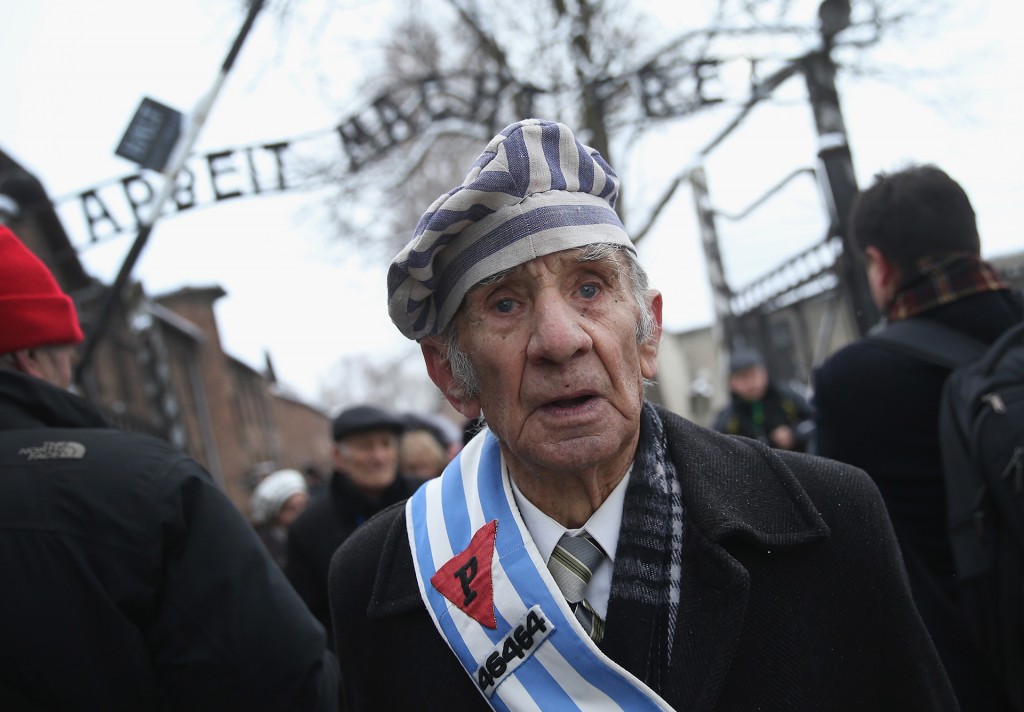Ceremony Marks Anniversary of Auschwitz Liberation
January 27, 2015

A survivor from the Auschwitz concentration camp walks through the Arbeit Macht Frei (Work Makes You Free) entrance gate to the camp, after laying wreaths with other survivors at the execution wall, on Jan. 27, 2015, in Oswiecim, Poland. Survivors attended a ceremony commemorating the 70th anniversary of the liberation of Auschwitz by Soviet troops on Jan. 27, 1945. © Sean Gallup, Getty Images
Some 300 survivors of the Auschwitz concentration camp returned today for a ceremony marking the 70th anniversary of the camp’s liberation. Nazi Germany ran the camp in occupied Poland during World War II (1939-1945) and used it as a center for forced labor and murdering prisoners. While some prisoners died at Auschwitz of starvation or disease, most were methodically killed. As of 1942, Auschwitz became equipped with four large gas chambers—rooms where people were killed with poisonous hydrogen cyanide gas. About 1.25 million people were killed at Auschwitz. Most of the people killed were Jews, but some Poles, Roma, and Soviet prisoners of war also died there.
When Soviet soldiers entered Auschwitz on Jan. 27, 1945, they were shocked by what they saw. The Nazis who had fled before the advancing Soviet army left behind piles of corpses, prisoners bed-ridden or otherwise too ill or starved to walk on their own, and about 400 children. Soviet troops eventually found about 7,000 surviving prisoners at Auschwitz. The remaining prisoners who had been held at Auschwitz, some 60,000 people, had been forced by the Nazis to march westward toward Germany. Many people, days away from liberation, died on these “death marches.”
The ceremony today, which included a concert and speeches, was attended by a number of world leaders, including French President François Hollande, Polish President Bronislaw Komorowski, and president of Ukraine Petro Poroshenko. About 1,500 survivors attended the Auschwitz liberation ceremony held 10 years ago. The youngest survivors are now in their 70′s, and this may be the last anniversary held to include a substantial number of them.
Other World Book articles and external sites:


